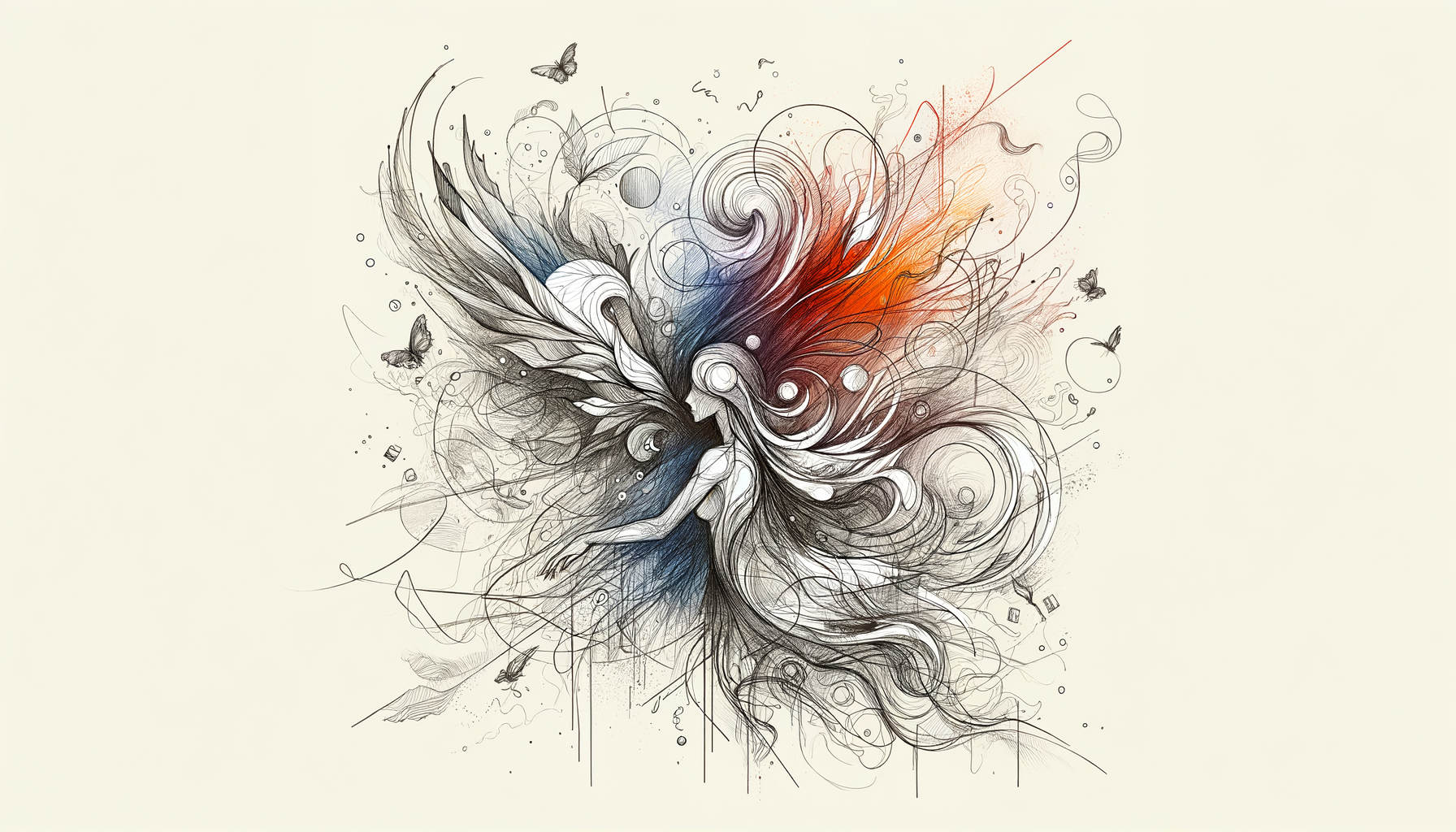Scars are funny things. Not “ha-ha” funny, but the kind of funny that gets you reflecting at 2 a.m. You’re brushing your teeth, you catch a glimpse of that faint line on your elbow, and suddenly, boom—you’re back in eighth grade, flying off your bike in front of your crush, Jenny Macbeth. Scars are time travelers. They remind us not just of the moments we got hurt, but of everything happening around that moment—like the fact Jenny didn’t laugh (win!) but definitely didn’t ask if I was okay (ouch).
And the wild part? This doesn’t just apply to the ones you can see. Whether it’s a scar on your knee from your unfortunate skateboarding phase or a figurative scar from the time you got ghosted by the person who used to send you four-hour Spotify playlists, they all tell a story. A messy, imperfect, deeply human story. And those, my friends, are the best kind.
Let’s dive in, shall we?
The Versions of Ourselves That Scars Preserve
Scars, whether tangible or emotional, are bookmarks. They stick little Post-it notes in the chapters where life got real—for better or worse. That tiny, crescent-shaped scar below my index finger? It’s from learning to cook at 20 and discovering that peeling butternut squash is basically an extreme sport. Naively, I thought the moment was about mastering risotto, but now? That scar takes me back to my first rented apartment, a cramped studio where the oven doubled as storage because Toronto real estate loves a good joke. It was also where I fell in love for the first time—or thought I did.
That same scar became a literal talking point years later on a second date. As I recounted the butternut squash debacle, we erupted into that kind of laughter that only happens when two nervous people find something in common. Sure, it didn’t work out between us—he wasn’t that into Tim Hortons double-doubles—but I still think of that date when I see the scar. The point here? Scars don’t just preserve versions of ourselves. They preserve the moments when someone else temporarily joined our story.
What Emotional Scars Teach That Physical Ones Can’t
Emotional scars are their own beast, though—you don’t get to see the healing happen in real-time. They live in your gut, your chest, that sinking pit somewhere behind your ribs that aches when you hear Adele at the wrong moment. Emotional scars sneak up, like hearing an ex’s name while scrolling friend-of-friend posts. They also make terrible wingmen—messy, loud, and entirely prone to reminding you of your most awkward, vulnerable moments.
But here’s the thing: they can’t sneak up on you forever. One day, you’re sitting in yet another pointless Zoom call at work when your inner heartbreak DJ pumps out “Someone Like You,” and somehow, it doesn’t hurt. That’s when you realize the scar’s faded. Not gone—because emotional scars never really disappear—but faded enough that it doesn’t hijack your day.
Emotional scars shift the focus over time. When you first get one, it’s all about the source of the pain: the betrayal, the ghosting, the weirdly passive-aggressive breakup email. (Did he seriously say, “I’m releasing you from our story?” Yes. Yes, he did.) But when the healing’s done—or even halfway done—you start to value the lesson more than the hurt. Sometimes it’s learning to trust your instincts again or setting boundaries with people who don’t deserve three read receipts in a row. Other times, it’s just knowing that you can survive.
The Beauty in Sharing Your Scars
What’s fascinating is that scars—both kinds—tend to grow in value when shared. Not in the oversharing sense (please don’t monologue about your breakup during a first date), but in letting someone see the vulnerability behind them.
I once had a friend point to a faint scar on my cheek and say, “You never told me how you got that.” I hadn’t, because, frankly, slipping on a patch of ice at 15 wasn’t peak storytelling. But as I explained, my friend said something offhand: “It makes you look less perfect—more approachable.” Now, I’m far from perfect (cue my neighbors reminding me I definitely overwater my plants), but her observation hit me. Scars don’t take away from who you are; they make you more relatable. They remind people you’re not an airbrushed stock photo—you’re three-dimensional, with stories to back it up.
In relationships, this is gold. Showing someone both your literal and figurative scars—when the time is right—invites them into the parts of your life where you’ve been tested and changed. It’s the emotional equivalent of inviting them into the kitchen while you’re cooking instead of serving them a perfectly plated dish. It’s messy, flawed, and deeply meaningful.
How to Honor Your Scars Without Letting Them Define You
Of course, no one’s advocating for living in “scar world” 24/7. (If you’ve branded yourself as “that person with trauma swagger,” maybe ease up on the gas.) Honoring scars doesn’t mean living in the past—it means appreciating what they’ve taught you.
Here’s a cheat sheet:
- Acknowledge, Don’t Obsess. If a scar—physical or emotional—still makes you wince, allow the memory but don’t spiral into it. Healing doesn’t mean the memory vanishes; it just gets easier to carry.
- Laugh When You Can. Whether it’s the botched skateboard trick or the person who broke up with you via emoji, find the absurdity. Scars have stories; stories are inherently better with humor.
- Know When to Flip the Page. Yes, scars shape us. No, they don’t define us. Your life is a novel, not a single incident. You can acknowledge page 157 while still committing to writing a killer page 158.
A Final Scar Story
There’s one scar I rarely think about—the one on my knee. When I was 12, I tripped climbing a fence to rescue a rogue Frisbee (why are boys like this?), and I tore my jeans wide open. At the time, I saw the scar as a glaring flaw—a permanent reminder of my clumsiness. But years later, I let someone trace it with their finger as we sat on a park bench, talking about nothing and everything. “It’s kind of cool,” they said, matter-of-factly. And for the first time, I believed it.
Scars don’t exist purely to remind you of pain. Sometimes, they take you back to moments of triumph. Other times, they hint at the stronger, wiser person you’ve become. And who knows? Maybe they’ll even spark the kind of connection you didn’t see coming.
So, here’s to your scars—the messy little chapters scrawled across your skin and soul. They’ve shaped you, changed you, and told the world that yes, you’ve lived. And that’s the kind of story worth leaning into every day.




















